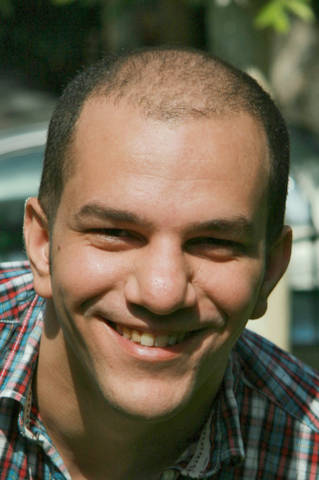Egypt hires PR firm to revamp its image
By Osama Diab
A picture is worth a thousand words, but a doctored picture is a scandal that can be worth a thousand articles to cover.
Saturday 6 November 2010
A few weeks ago, the state-run al-Ahram newspaper was severely slammed by local and international media for falsely suggesting Egyptian President Hosni Mubarak was leading the peace talks by faking a picture taken during the peace talks between Israel and Palestine in Washington.
In its quest to improve its image, Egypt's government is doing more than just moving President Mubarak around pictures. The government recently hired the major U.K. public relations firm Bell Pottinger to better deliver its message to an international audience.
The decision to seek PR help is due to the government's discontent over the way Egypt's regime is portrayed in Western media. Abdel Moneim Saeid, al-Ahram's chairman, pointed his finger at everyone except himself, his publication and the regime he represents in a statement about the media's reaction to the doctored picture. He explained that the attack on al-Ahram was partly due to the West's thirst for sensation.
Saeid should know that what he thinks is an overreaction to an altered photo is in fact a frustration over a newspaper that's been defending a regime many perceive as lacking legitimacy. The incident was first discovered by Egyptian blogger Wael Khalil and was mainly mocked by Egyptians and Egyptian newspapers, not the Western media. But it seems like the regime cares more about its image beyond its borders than at home.
This attack on al-Ahram is not only due to the West's thirst for sensation; the condition of human rights in Egypt has deteriorated in the past few years. According to Heba Morayef, a Human Rights Watch researcher on Egypt and Libya, there has been an increase in the number of arrests of dissidents, crackdown on peaceful demonstrations, and an increase in the number of arrests due to religious beliefs. “The Egyptian government knows that the world will be closely watching Egypt at this time and also that there will be a lot of human rights violations in this election year,” Morayef said.
A Bell Pottinger representative denied that the hiring has anything to do with polishing up the regime ahead of the 2011 presidential elections where many expect Gamal Mubarak to “inherit” power from his father. She explained to me through an email correspondence that they have been appointed by the government of Egypt to review the ways in which the government communicates with the international media and to advise on how to get the government's messages better understood internationally.
“Like many other countries, Egypt faces some serious problems, but the government has made real progress in recent years in introducing political and economic reforms and has many achievements to its credit, which have not always been properly communicated to the world at large,” says the Bell Pottinger representative.
Egypt is also publicly a client in a few other lobbying firms in Washington. The Livingston group lists Egypt as a client on their website. Livingston was also hired by Libya to improve Libyan President Muammar al-Qadhafi's image in Washington before they ended their contract with Libya on the eve of al-Qadhafi's visit to Washington.
Other than Egypt and Libya, other presidents who are also rumored to have plans to inherit power to their sons seek PR help from Western agencies. Equatorial Guinea, an oil-rich country known for very high levels of corruption and a hard-hearted dictatorship, sought the help of the Washington-based Cassidy & Associates for $120,000 per month to re-brand the West African country as a new democracy. The PR efforts seemed to pay off when the president of the West African state was called a good friend by then-Secretary of State Condoleezza Rice on his first visit to the United States two years after they hired Cassidy & Associates. Equatorial Guinea is ranked 168 out of 180 countries in the Transparency International Corruption Perception Index.
President of Zimbabwe Robert Mugabe also signed a $400,000 contract with a Canadian publicist Ari Ben-Menashe to again fix his regime's hurt image abroad.
It is clear why some authoritarian regimes use different ways to support their image rather than achieving real progress on the ground. Presidents in their 70s and 80s who have been in power for three or four decades know democracy and fair elections would probably put their rule at risk. Cosmetic changes are easier than legitimate political reforms.
Instead of Egyptians' tax money going to hospitals, roads and schools, it goes to building huge state security apparatuses to thwart any attempt for change, funding media outlets that are becoming increasingly unpopular, and to PR and lobbying firms to convince the West that some progress is actually happening.
This article was first published on Worldpress.org on 21 October 2010. Republished here with the author's permission. ©Osama Diab.


